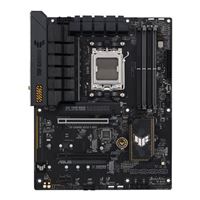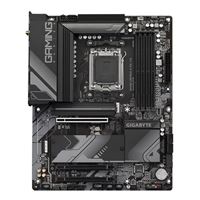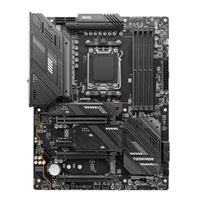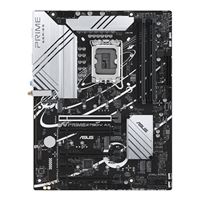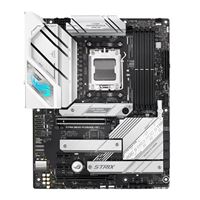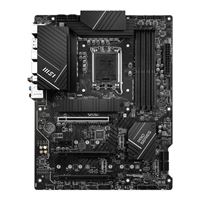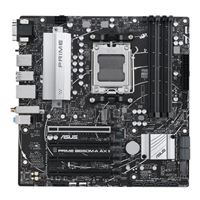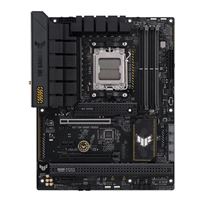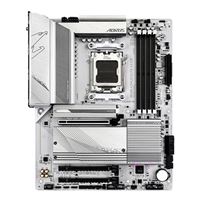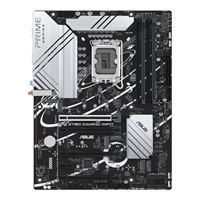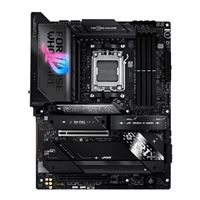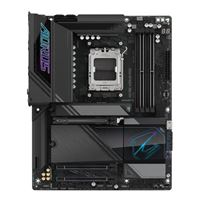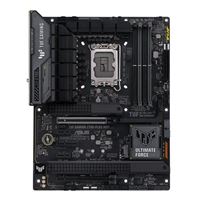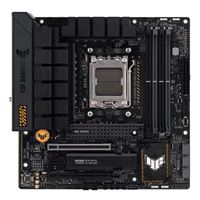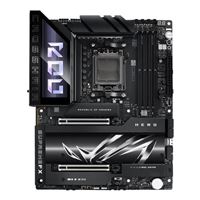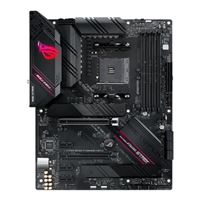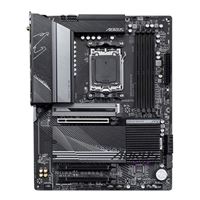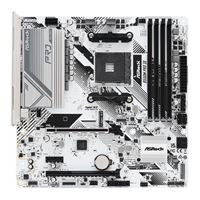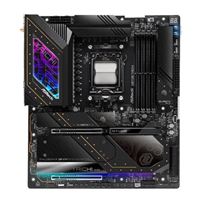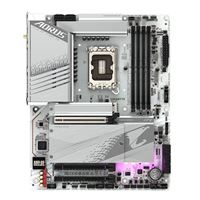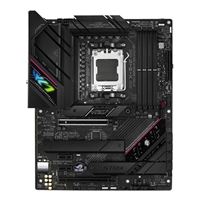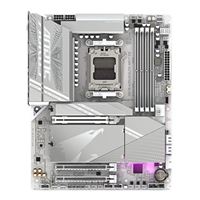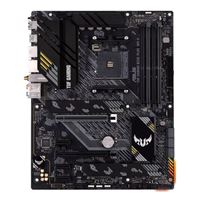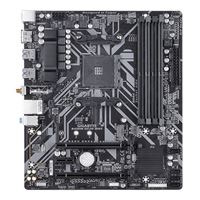Breadcrumbs
- Selected Refinements:
- Motherboardsx
Special Offers / Advertisements
Compare up to 4 items
New list of matching products
X
Sorry, you may compare a maximum of 4 items at a time.
Please clear one or more of your compare items before adding another-
25+ IN STOCK at Cambridge StoreOur price $179.99
Original price $199.99Save $20.003 open box from $143.96 -
25+ IN STOCK at Cambridge StoreOur price $179.99
Original price $199.99Save $20.005 open box from $98.96 -
25+ IN STOCK at Cambridge StoreOur price $239.99
Original price $299.99Save $60.004 open box from $155.96 -
25 IN STOCK at Cambridge StoreOur price $219.993 open box from $131.96
-
25+ IN STOCK at Cambridge StoreOur price $229.99
Original price $259.99Save $30.001 open box from $191.96 -
25+ IN STOCK at Cambridge StoreOur price $169.99
Original price $209.99Save $40.001 open box from $104.96 -
25+ IN STOCK at Cambridge StoreOur price $159.99
Original price $169.99Save $10.002 open box from $110.96 -
25+ IN STOCK at Cambridge StoreOur price $189.99
Original price $219.99Save $30.004 open box from $132.96 -
17 IN STOCK at Cambridge StoreOur price $199.99
Original price $219.99Save $20.00 -
25+ IN STOCK at Cambridge StoreOur price $179.99
Original price $199.99Save $20.00 -
25 IN STOCK at Cambridge StoreOur price $499.99
-
25+ IN STOCK at Cambridge StoreOur price $319.99
-
2 IN STOCK at Cambridge StoreOur price $219.99
Original price $249.99Save $30.00 -
9 IN STOCK at Cambridge StoreOur price $189.99
Original price $209.99Save $20.001 open box from $151.96 -
21 IN STOCK at Cambridge StoreOur price $699.99
-
2 IN STOCK at Cambridge StoreOur price $179.991 open box from $143.96
-
25+ IN STOCK at Cambridge StoreOur price $199.99
Original price $219.99Save $20.00 -
5 IN STOCK at Cambridge StoreOur price $84.99
-
3 IN STOCK at Cambridge StoreOur price $449.99
-
3 IN STOCK at Cambridge StoreOur price $229.99
Original price $239.99Save $10.00 -
10 IN STOCK at Cambridge StoreOur price $289.991 open box from $231.96
-
11 IN STOCK at Cambridge StoreOur price $289.99
-
17 IN STOCK at Cambridge StoreOur price $149.991 open box from $119.96
-
1 IN STOCK at Cambridge StoreOur price $72.99
Original price $94.99Save $22.00
Special Offers / Advertisements
{
'name': 'B650-E TUF Gaming WiFi AMD AM5 ATX Motherboard',
'id': '679451',
'price': '179.99',
'brand': 'ASUS',
'category': 'Motherboards|122',
'list': 'Search Results',
'position': 1
},{
'name': 'B650 Gaming X AX V2 AMD AM5 ATX Motherboard',
'id': '676262',
'price': '179.99',
'brand': 'Gigabyte',
'category': 'Motherboards|122',
'list': 'Search Results',
'position': 2
},{
'name': 'X670E MAG Tomahawk WiFi AMD AM5 ATX Motherboard',
'id': '666337',
'price': '239.99',
'brand': 'MSI',
'category': 'Motherboards|122',
'list': 'Search Results',
'position': 3
},{
'name': 'Z790-V Prime AX Intel LGA 1700 ATX Motherboard',
'id': '679076',
'price': '219.99',
'brand': 'ASUS',
'category': 'Motherboards|122',
'list': 'Search Results',
'position': 4
},{
'name': 'B650-A ROG Strix Gaming WiFi AMD AM5 ATX Motherboard',
'id': '659715',
'price': '229.99',
'brand': 'ASUS',
'category': 'Motherboards|122',
'list': 'Search Results',
'position': 5
},{
'name': 'Z790-P Pro WiFi D4 Intel LGA 1700 ATX Motherboard',
'id': '660223',
'price': '169.99',
'brand': 'MSI',
'category': 'Motherboards|122',
'list': 'Search Results',
'position': 6
},{
'name': 'B650M-A Prime AX II AMD AM5 microATX Motherboard',
'id': '662592',
'price': '159.99',
'brand': 'ASUS',
'category': 'Motherboards|122',
'list': 'Search Results',
'position': 7
},{
'name': 'B650-PLUS TUF GAMING WIFI ATX AM5 Motherboard',
'id': '653699',
'price': '189.99',
'brand': 'ASUS',
'category': 'Motherboards|122',
'list': 'Search Results',
'position': 8
},{
'name': 'B650 AORUS ELITE AX ICE AMD AM5 ATX Motherboard',
'id': '674899',
'price': '199.99',
'brand': 'Gigabyte',
'category': 'Motherboards|122',
'list': 'Search Results',
'position': 9
},{
'name': 'Z790 Prime Gaming WIFI7 Intel LGA 1700 ATX',
'id': '682097',
'price': '179.99',
'brand': 'ASUS',
'category': 'Motherboards|122',
'list': 'Search Results',
'position': 10
},{
'name': 'X870E-E ROG Strix Gaming WiFi AMD AM5 ATX Motherboard',
'id': '684469',
'price': '499.99',
'brand': 'ASUS',
'category': 'Motherboards|122',
'list': 'Search Results',
'position': 11
},{
'name': 'X870E AORUS ELITE WIFI7 AMD AM5 ATX Motherboard',
'id': '685518',
'price': '319.99',
'brand': 'Gigabyte',
'category': 'Motherboards|122',
'list': 'Search Results',
'position': 12
},{
'name': 'Z790-Plus TUF Gaming WiFi D5 Intel LGA 1700 ATX Motherboard',
'id': '662599',
'price': '219.99',
'brand': 'ASUS',
'category': 'Motherboards|122',
'list': 'Search Results',
'position': 13
},{
'name': 'B650M-PLUS TUF Gaming WiFi AMD AM5 microATX Motherboard',
'id': '653038',
'price': '189.99',
'brand': 'ASUS',
'category': 'Motherboards|122',
'list': 'Search Results',
'position': 14
},{
'name': 'X870E ROG CROSSHAIR HERO AMD AM5 ATX Motherboard',
'id': '684468',
'price': '699.99',
'brand': 'ASUS',
'category': 'Motherboards|122',
'list': 'Search Results',
'position': 15
},{
'name': 'B550-F ROG Strix Gaming WiFi II AMD AM4 ATX Motherboard',
'id': '642839',
'price': '179.99',
'brand': 'ASUS',
'category': 'Motherboards|122',
'list': 'Search Results',
'position': 16
},{
'name': 'B650 AORUS Elite AX V2 AMD AM5 ATX Motherboard',
'id': '674906',
'price': '199.99',
'brand': 'Gigabyte',
'category': 'Motherboards|122',
'list': 'Search Results',
'position': 17
},{
'name': 'B550M Pro SE AMD AM4 microATX Motherboard',
'id': '670061',
'price': '84.99',
'brand': 'ASRock',
'category': 'Motherboards|122',
'list': 'Search Results',
'position': 18
},{
'name': 'X870E Taichi AMD AM5 ATX Motherboard',
'id': '685409',
'price': '449.99',
'brand': 'ASRock',
'category': 'Motherboards|122',
'list': 'Search Results',
'position': 19
},{
'name': 'Z790 AORUS Elite AX Ice Intel LGA 1700 ATX Motherboard',
'id': '674464',
'price': '229.99',
'brand': 'Gigabyte',
'category': 'Motherboards|122',
'list': 'Search Results',
'position': 20
},{
'name': 'B650E-F ROG STRIX GAMING WIFI AMD AM5 ATX Motherboard',
'id': '654072',
'price': '289.99',
'brand': 'ASUS',
'category': 'Motherboards|122',
'list': 'Search Results',
'position': 21
},{
'name': 'X870 AORUS ELITE WIFI7 ICE AMD AM5 ATX Motherboard',
'id': '685519',
'price': '289.99',
'brand': 'Gigabyte',
'category': 'Motherboards|122',
'list': 'Search Results',
'position': 22
},{
'name': 'B550-PLUS TUF Gaming WiFi II AMD AM4 ATX Motherboard',
'id': '647157',
'price': '149.99',
'brand': 'ASUS',
'category': 'Motherboards|122',
'list': 'Search Results',
'position': 23
},{
'name': 'B450M DS3H WiFi AMD AM4 microATX Motherboard',
'id': '647198',
'price': '72.99',
'brand': 'Gigabyte',
'category': 'Motherboards|122',
'list': 'Search Results',
'position': 24
}
{'id': 'Banner',
'name': 'ASUS Z890 Web Banner',
'creative': 'https://60a99bedadae98078522-a9b6cded92292ef3bace063619038eb1.ssl.cf2.rackcdn.com/webp_ASUSOPBG_Intel_Z890Series_search_banner.webp',
'position': '1' },{'id': 'Banner',
'name': 'ASUS X870 Web Banner',
'creative': 'https://60a99bedadae98078522-a9b6cded92292ef3bace063619038eb1.ssl.cf2.rackcdn.com/webp_ASUS_AMD-X870Series.webp',
'position': '2' },{'id': 'Banner',
'name': 'Microsoft Windows 11 Web Banner',
'creative': 'https://60a99bedadae98078522-a9b6cded92292ef3bace063619038eb1.ssl.cf2.rackcdn.com/webp_12_2023Windows11.webp',
'position': '3' },{'id': 'Tower',
'name': 'SMB Best for Business - Cambridge',
'creative': 'https://60a99bedadae98078522-a9b6cded92292ef3bace063619038eb1.ssl.cf2.rackcdn.com/images_ads_2021Search_August_WorkstationST.png',
'position': '1' },{'id': 'Tower',
'name': 'Micro Center eNews Banner',
'creative': 'https://60a99bedadae98078522-a9b6cded92292ef3bace063619038eb1.ssl.cf2.rackcdn.com/webp_MCNewsST.webp',
'position': '2' }






